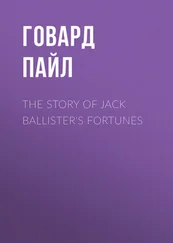Ulrich Frank - Simon Eichelkatz; The Patriarch. Two Stories of Jewish Life
Здесь есть возможность читать онлайн «Ulrich Frank - Simon Eichelkatz; The Patriarch. Two Stories of Jewish Life» — ознакомительный отрывок электронной книги совершенно бесплатно, а после прочтения отрывка купить полную версию. В некоторых случаях можно слушать аудио, скачать через торрент в формате fb2 и присутствует краткое содержание. Жанр: foreign_antique, foreign_prose, на английском языке. Описание произведения, (предисловие) а так же отзывы посетителей доступны на портале библиотеки ЛибКат.
- Название:Simon Eichelkatz; The Patriarch. Two Stories of Jewish Life
- Автор:
- Жанр:
- Год:неизвестен
- ISBN:нет данных
- Рейтинг книги:4 / 5. Голосов: 1
-
Избранное:Добавить в избранное
- Отзывы:
-
Ваша оценка:
- 80
- 1
- 2
- 3
- 4
- 5
Simon Eichelkatz; The Patriarch. Two Stories of Jewish Life: краткое содержание, описание и аннотация
Предлагаем к чтению аннотацию, описание, краткое содержание или предисловие (зависит от того, что написал сам автор книги «Simon Eichelkatz; The Patriarch. Two Stories of Jewish Life»). Если вы не нашли необходимую информацию о книге — напишите в комментариях, мы постараемся отыскать её.
Simon Eichelkatz; The Patriarch. Two Stories of Jewish Life — читать онлайн ознакомительный отрывок
Ниже представлен текст книги, разбитый по страницам. Система сохранения места последней прочитанной страницы, позволяет с удобством читать онлайн бесплатно книгу «Simon Eichelkatz; The Patriarch. Two Stories of Jewish Life», без необходимости каждый раз заново искать на чём Вы остановились. Поставьте закладку, и сможете в любой момент перейти на страницу, на которой закончили чтение.
Интервал:
Закладка:
At that time conditions were probably similar to these in all places in which rabbis of modern culture and academic training began to carry light and truth to the minds of the Jews, who through the persecutions and oppressions under which they had so long languished had become distrustful, secretive, cowardly, and embittered. It was no slight task. And many a rabbi, weak and faint-hearted, wrecked himself in the attempt. In that case, it was a piece of good fortune if the Rebbetzin saw to it that her husband did not suffer all that was put upon him, if she stood shoulder to shoulder with him, protecting, guarding him, warding off what foolishness, ill-nature, and tyrannical whims hatched against him. Usually the relation was this: the Rav they loved but vexed, the Rebbetzin they hated but feared. A certain equilibrium was thus maintained.
"And our Rebbetzin, Frau Dr. Merzbach, she was their match!" cried Simon Eichelkatz. "She was proud, and she looked down on the members of the congregation almost disdainfully. They couldn't hold a candle to her so far as family and position went; for she was the daughter of one of the best and most prominent families; and the piety and learning of her father and grandfather were known in all Israel. How could anyone in the Khille compare with her in breeding and birth?"
Simon Eichelkatz went on to tell me how these tradesmen and business men seemed like vassals to her. That was how she had been used to see the members of the congregation approach her father in his house; and she knew that was how they had approached her grandfather, with the deepest respect and devotion. And so the free way in which the people dared meet her husband, this forwardness and familiarity, wounded her beyond measure. And fearless and self-confident as she was, she made no secret of her feelings. This gave rise to eternal jarring; and again and again the Rav tried to reconcile her to the situation. But though she revered her husband as a saint and loved him with the self-surrender and faithfulness of a Jewish wife, she would not abandon her ground. Perhaps just because she loved him. She unconsciously felt that one could not get around the "rabble" merely with benevolence and mildness; firmness and haughtiness were also necessary in dealing with them. It is not unlikely that Dr. Merzbach could not have fought the fight to the finish if it had not been for his courageous wife. Certain it is that she kept many a slight from him, many an ill-natured offense. They all took care to let her alone; and when Frau Dr. Merzbach walked along the Ring, many a one slunk off around the corner, because his conscience pricked him on account of some gossip, some intrigue, or some petty persecution – these were the weapons with which the "Saints" agitated against the noble man. With his beautiful nature, he was no match for them, but they trembled before the Rebbetzin.
"And believe me, Herr Kreisphysikus," Simon Eichelkatz commented, "she was right; nothing else was left for her to do. That was the only way to get the better of that lying pack of hypocrites. If they hadn't been afraid of her, they would have fought even harder against the man who wanted to bring them the blessings of a regulated, proper life. They prepared enough bitterness for him, and he would probably have gotten tired and discouraged, gone to pieces sometimes, if his life in his own home had not weighed in the balance against the lowness of the Khille.
"And that's where the Rebbetzin was remarkable. She was just as clever as she was proud; and even her hottest opponents – and not all of them were of the Orthodox; some of the 'gentry' were envious of her and fought her – well, even her hottest opponents admitted that she was intelligent, and knew how to tackle things, that she tried to acquire modern culture, and that she gathered the better elements in the congregation about her. And her house was gay and refined, people felt at home there. Nowhere did one pass one's time so well as at Dr. Merzbach's."
The rabbi's house on his Friday evenings became a centre for the cultivated people, the people who held high places in the intellectual world of the congregation and the city. Christians, too, entered the circle.
"You can imagine, Herr Doktor, what bad blood that made. But the Rebbetzin didn't concern herself about it, and nobody could get a hold on her, because no fault could be found with her piety. Many said she was more orthodox than the Rav. There was some truth in this. He, being a great Talmudist, might find some freer interpretation of the laws, he might open up new ways, while she stuck fast to what had been sacred to her in her grandfather's and her father's home. I remember how he once came to my office on a very hot day, and took his hat off, and wiped his forehead, and then sat there without anything on his head, when suddenly his wife appeared outside in the store. He snatched up his hat, smiling in an embarrassed way, and said: 'God forbid my wife should see me sitting here without my cap.'"
Such trivialities and externalities invested her with glamour. Besides, there was her great philanthropy and her public work. Not a charitable institution belonging to the city or the congregation but that she was at the head of it. And outwardly cold and reserved, always carrying herself with great dignity, she still would willingly sacrifice herself in a good cause.
"During the cholera epidemic," continued Simon Eichelkatz, "I saw her at sick-beds, and I know what a heart she had, for all her fine intellect. But the others came no nearer to her, because they judged her according to her understanding alone, and that often made her appear hard and cold. But she didn't bother about things of that sort. She did not even have the wish to come nearer to those people; they seemed rude and uncultivated to her, and she was not in sympathy with them. Dr. Merzbach sometimes tried to make her change her opinion, but that was the point on which she would not yield, perhaps she couldn't. This was probably the one dark cloud on their blessed union, and it was a union that lasted through forty-three years of perfect agreement, of the purest and highest joy, of the greatest contentment.
"The Rebbetzin felt at home only in her own house; to the Khille she always remained a stranger. And do you know, Herr Kreisphysikus, when I come to think about it, I believe the Rebbetzin is always a stranger in the congregation? She can't fit herself in."
I had to smile. I thought of my mother, who was so different. But, to be sure, times have changed, and manners with them. And then the narrow little community in which my father worked, among friendly, kindly men and women! The "Rebbetzin" is probably a phenomenon belonging to a past epoch.
September 30.Autumn is now completely upon us. Raw, gloomy, chilly, with everlasting rains. The city is not beautiful in this garb, and I would certainly succumb to my tendency to melancholy, if I did not have my profession and – Simon Eichelkatz.
He speaks about every possible thing. Only when the talk takes a personal turn, touching upon incidents in his life, he becomes monosyllabic and reserved. Consequently, I really know very little about him. With the exception of the hints once thrown out by Feiwel Silbermann about his "baptized" son Friedrich Eichner, I have learned nothing about him. It goes against me to question a servant, but I feel sure something lurks behind the sharp, ironic manner in which Feiwel on every occasion says "the gracious Madame Eichelkatz." Clearly, Madame Eichelkatz did not suit his taste. And I learn nothing from the people, either. I have not yet left my card with "the first Jewish families" of the congregation, and so I have not yet established any connections. But I really want to very soon. At present I feel more at home among the dead members of this congregation, all of whom, I hope, Simon Eichelkatz will by and by bring to life for me.
Читать дальшеИнтервал:
Закладка:
Похожие книги на «Simon Eichelkatz; The Patriarch. Two Stories of Jewish Life»
Представляем Вашему вниманию похожие книги на «Simon Eichelkatz; The Patriarch. Two Stories of Jewish Life» списком для выбора. Мы отобрали схожую по названию и смыслу литературу в надежде предоставить читателям больше вариантов отыскать новые, интересные, ещё непрочитанные произведения.
Обсуждение, отзывы о книге «Simon Eichelkatz; The Patriarch. Two Stories of Jewish Life» и просто собственные мнения читателей. Оставьте ваши комментарии, напишите, что Вы думаете о произведении, его смысле или главных героях. Укажите что конкретно понравилось, а что нет, и почему Вы так считаете.












